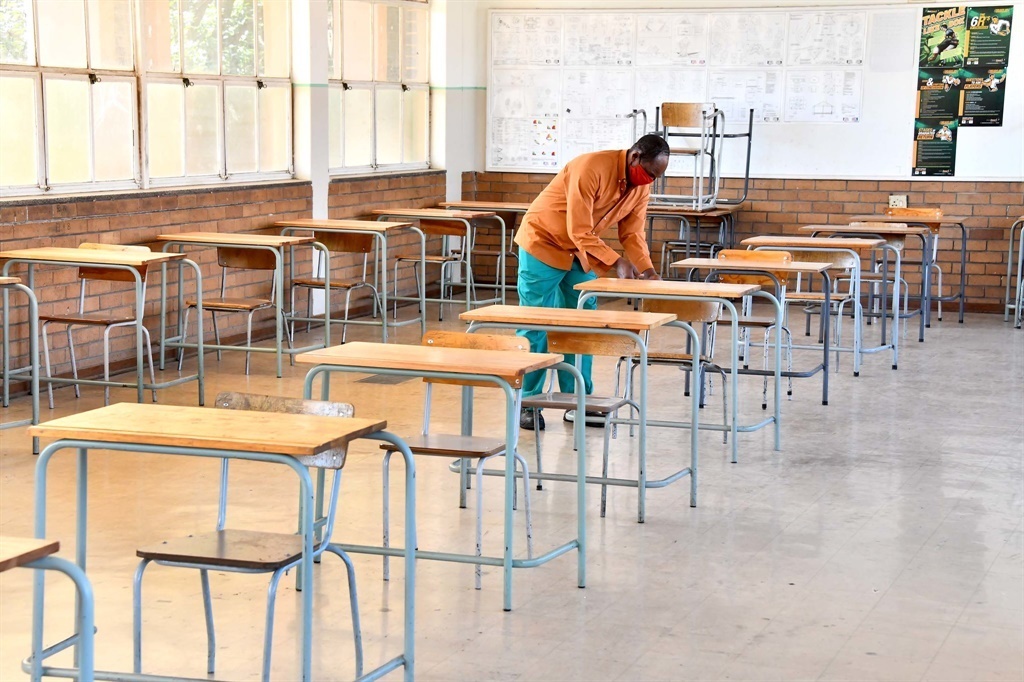
The Covid-19 pandemic has alerted us to a number of deeper issues that have been hidden under the narratives of performativity, writes Chris Reddy.
So what will schools look like post Covid-19?
Nobody knows and it's difficult to risk a prediction offhand since this pandemic is an unprecedented occurrence we have never been required to deal with hitherto.
What we do know is what schools and what the education system looked like before this pandemic and we can probably speculate on what we might want things to be like, based on revelations that the virus and the resultant pandemic left in its wake. This think piece is based on such a speculation, working from where we were and are to where we might want to go and be in education and schooling.
The education crisis, like the economic crisis, is an old problem that predates the Covid-19 pandemic.
In the late 1990's, the South African education and thus schooling system underwent a major overhaul. Right from the start, the shifts in education were in line with global trends and policies sweeping the world and these had a big influence on the policy decisions made in the country.
In his book Schooling and the Struggle for Public Life: Democracy's Promise and Education's Challenge (2005), Henry Giroux suggests that neo-liberal discourses manifested in public schooling has taken the education system backward and de-humanised learning and educational experiences through testing, examinations and projects evaluated by predetermined standards.
Essentially, education was reduced to a technical process governed by technocratic rationality, performativity and business-like arrangements for school management.
Deeper issues
Then Covid-19, the big leveller, came along and subjected everyone to the same conditions and risks but some (schools) predictably coped better than others. Some of the schools in more privileged contexts were able to continue operating as normal while those in other/different contexts came to a complete standstill.
This pandemic, however, has alerted us to a number of deeper issues that have been hidden under the narratives of performativity as highlighted by my colleagues Nuraan Davids and Michael Le Cordeur in their respective articles for News24 and Daily Maverick earlier this year. Deep inequalities in resource provisions, historical backlogs, poor infrastructure and the realities of the digital divide we just gloss over in our daily rushing also reared its ugly head.
The complexity of schools and how they operate in different ecologies while negotiating the CAPS (Curriculum Assessment Policy Statements) document with its one size fits all, high intensity of testing and knowledge often far from the realities of children who live in hopeless situations wondering where their next meal will come from, was also brought into sharp focus.
Schools are responsible, usually with families and communities, for passing on the "grand narratives" of society, the frameworks for thinking and being. Education/schooling has also been viewed as a passage to better life chances and opportunities. The turmoil resulting from the pandemic begs the question: what might schools and education systems look like post Covid-19? I think the answer lies, in part, in what schools and education systems need to do to come out better on the other side of this pandemic.
Systems
Education departments should develop systems which provide space for growth and development of individual potential. They should ensure that the necessary protective and sanitary equipment are provided to all schools, and that a dedicated (trained) person for Covid-19-related matters (currently) and other possible health scenarios in the future is stationed at all schools. Efforts should be made to reduce the considerable digital divide through proportional funding and more opportunities need to be provided for remote teaching and access to such services. Food security problems also need to be alleviated through suitable policies and funding.
Education departments must also set up links with primary healthcare centres such as day hospitals, and provide nationally-mandated health protocols for education institutions. They should also allocate curriculum space to topics that can ensure ongoing education about risks and health issues.
Education is really about entrusting the future to the next generations by equipping them with capacities to survive, to organise, to think, to plan and act. The post Covid-19 period is a space that can be used to enable these processes, so let's not miss the boat again.
- Chris Reddy is a professor in the Department of Curriculum Studies at Stellenbosch University.
*Want to respond to the columnist? Send your letter or article to opinions@news24.com with your name and town or province. You are welcome to also send a profile picture. We encourage a diversity of voices and views in our readers' submissions and reserve the right not to publish any and all submissions received.
Disclaimer: News24 encourages freedom of speech and the expression of diverse views. The views of columnists published on News24 are therefore their own and do not necessarily represent the views of News24.
